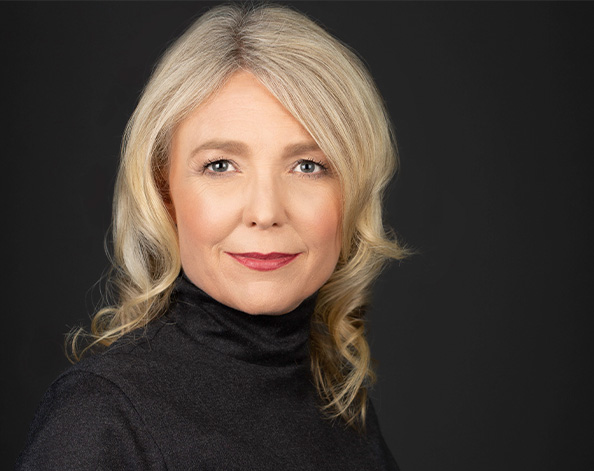In the discussion, hosted by FTSE 100 leadership coach Katherine Moore, both Maddie and Cheryl shared their experiences on the pitch and in the workplace and explained how they learned to be resilient and use stress as a tool for personal growth.
Here are their five top tips for turning stress into your superpower, which were shared live with the Investec network and may benefit you, your colleagues or connections.
1. Think of stress positively
At the heart of channelling stress is reframing the experience as a positive one.
For Maddie, acceptance is the first step in using stress to your advantage. Having been in the spotlight at the 2016 Olympics, she channelled her stress to avoid it damaging her performance.
“[The Rio Olympics] was a real test of the work that we'd done as a team and individually. I had to be conscious of the fact that I was stressed and learn to be very accepting of that, because it's normal.
“The adrenaline's there, your heart rate is higher, your hands are trembling, but that's ok,” Maddie says, “because those things help me deliver my ultimate performance. For me, it was all about accepting what was on the line, but staying very much in the moment and focusing on my processes.”
Cheryl Potter also believes in turning stress into something positive, particularly in a high-performing environment like private equity. “You can either think of it as stress, or you can think of it as excitement,” she says. “The adrenaline of having a deadline can be what really enables you to perform.”
2. Step outside of your comfort zone
Doing something you’re unfamiliar with can often be an intimidating or stressful prospect. However, Cheryl insists these stressful situations are part of improving your performance.
“I actually hate presenting,” Cheryl admits, “so I make sure I do it a lot because I feel like I need to do something that keeps me a little bit uncomfortable all the time, and I don't want to lose that ‘muscle’ as it were.”
For Maddie, setting goals which take her outside her comfort zone is a similarly important part of her training and growth as an athlete.
“For me, it all comes down to trying to make little gains every single day and re-setting my goals at different stages in my career. I know that actually, discomfort can be an opportunity for me to grow,” Maddie adds.
3. Understand what’s driving your stress
Unfortunately, stress can make you lose sight of what truly matters. In these situations, Maddie insists that it’s important to remember why you’re enduring stress.
“For me it comes back down to what we talk about as athletes which is why I’m there in the first place. What is my sense of purpose? I focus on why I’m putting myself in stressful situations. I know I want to achieve ultimate goals and I know that I'm doing this for the love of the game.
“I have to remind myself of that, because when you lose track of [your purpose], that's where you can get into situations where stress begins to dominate.”
4. Focus on the stress that you can control
We often encounter situations in our lives that are out of our control. Having regularly stepped onto the pitch in front of an audience of millions, Maddie notes how challenging it can be not to let others’ opinions impact your own mindset.
“I became almost focused on things out of my control, like people's opinions and what they were saying in the press, so every time I stepped on the pitch there were new stresses that started to dominate my headspace,” she recalls. “You can't perform at your best if you're thinking about stuff that's not in your control, so it's about keeping your ‘bubble’ small and being aware that these things are there, but when it comes to performance, knowing what it is you are focusing on.”
For Cheryl, there are similarities in the private equity world. “There will be some external factors that you cannot control which may determine an outcome to a greater or lesser extent, and you have to be comfortable with that,” Cheryl advises. “There's no point beating yourself up about the things that happen that you couldn't have reasonably foreseen.”
5. Know your limits
While stress can be used to push yourself and test your limits, Cheryl notes everyone has their limits and should always take the time to de-stress and manage their emotional wellbeing. “Everybody deals with pressure very differently but sometimes it's a volume and sustained intensity that creates the most stress and burnout. Whether you think you’re stressed or not, you run out of steam,” she warns. “I used to enforce holidays, and we had a ‘use it or lose it’ policy. There were people who thought it was really mean, but it was really, really important to me because otherwise there was no break.”
Maddie adds that support networks can be a crucial way to eliminate stress when the pressure gets too much.
“If I find myself getting a little bit too stressed, it's just about going and doing something completely away from any of it and finding those things that give me a lot of energy and a lot of happiness, which is normally friends or family,” she says.
“Having been through the highs and lows throughout my career, knowing myself and identifying signs of stress early has helped me have a more stable experience day-to-day.”
Want to be part of the Investec network? We’re an international bank for ambitious individuals. Get in touch today to find out more.
Browse articles in



